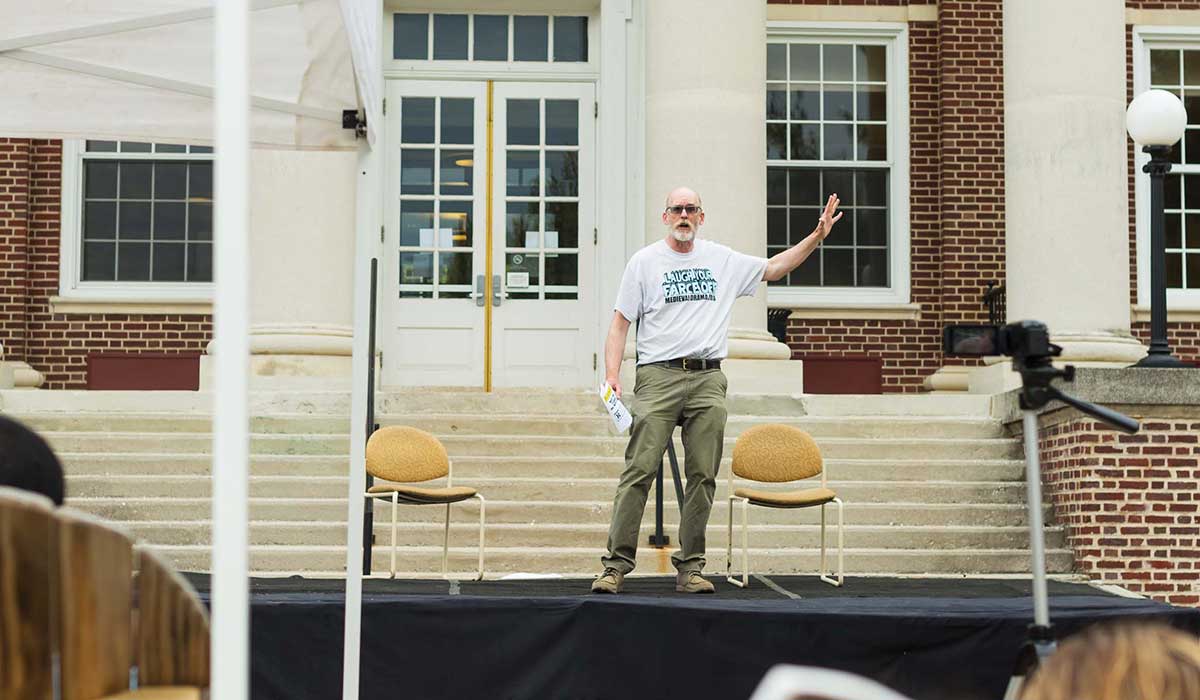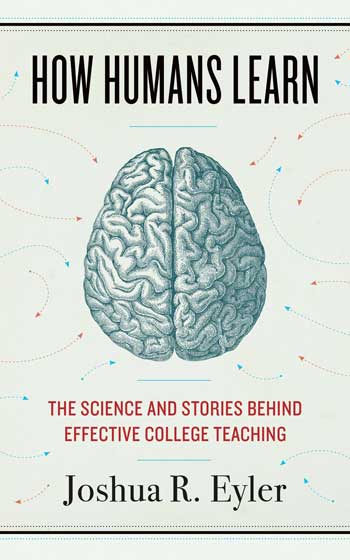
 Taking a good course is more than just a formative experience—it’s also the potential foundation for a successful career and a lifetime of intellectual vibrancy. Joshua R. Eyler’s ’00 book, How Humans Learn: the Science and Stories Behind Effective College Teaching (West Virginia University Press,2018), draws insights from developmental psychology, anthropology, and cognitive neuroscience to probe the question pressing professors everywhere: how do students learn? The book appeared as a cover story in The Chronicle of Higher Education and was mentioned in the Chicago Tribune’s Biblioracle column as a book of the year.
Taking a good course is more than just a formative experience—it’s also the potential foundation for a successful career and a lifetime of intellectual vibrancy. Joshua R. Eyler’s ’00 book, How Humans Learn: the Science and Stories Behind Effective College Teaching (West Virginia University Press,2018), draws insights from developmental psychology, anthropology, and cognitive neuroscience to probe the question pressing professors everywhere: how do students learn? The book appeared as a cover story in The Chronicle of Higher Education and was mentioned in the Chicago Tribune’s Biblioracle column as a book of the year.
Among those to whom the book was dedicated is English Prof. Christopher Richard Fee.
“Chris’s enthusiasm, his emphasis on student engagement, and his ability to make the Middle Ages connect vibrantly to the modern world were unlike anything I had ever seen in the classroom,” Eyler, an English major, wrote in the book’s introduction. “When I sat in Chris’s classes, I never laughed so hard, nor learned so much.”
Excerpt from the introduction to How Humans Learn
I particularly remember [Fee’s] Medieval Drama course. Although he had never taught the course before, he had a grand plan that we were all going to stage a medieval religious play at the end of the semester. We spent the first part of the term doing more traditional textual analysis, and then we broke up into teams to put on the production. I landed in a group tasked with translating the Middle English of the Wakefield “Noah” play into a modern idiom, but other students were working on props, making directorial decisions, and even building an actual pageant wagon for us to perform upon. For me, the biggest surprise of the semester was the directors’ decision to cast me as Noah himself. I had no acting experience whatsoever, but I relished the role and had a lot of fun. I also acquired a much deeper understanding of drama, both medieval and modern. Chris’s pedagogical experiment had worked, and the experience taught us more than any other approach to the subject could have.
Before I graduated, I took many courses with Chris, talked with him over lunches, and learned much from his example. When I told him I wanted to go to graduate school for medieval literature, he gave me some sage advice about the realities of an academic career and then worked his hardest to help me get into a good program. One evening, before I left to begin my PhD program at the University of Connecticut, I had dinner with Chris and asked him why he had helped me so much during my time as a student. Was there any way, I wondered, that I could repay him for his teaching and his kindness? He simply said that he hoped I would do the same thing for a student if I were ever in a position similar to his. I told him I would, and it is not an exaggeration to say that this promise is the foundation on which I have built my career.
This promise is the foundation on which I have built my career.”
We know a great deal about the kind of transformative teaching practiced by instructors like Chris Fee. Thousands of books and articles have been published over the last few decades that have clarified for us the techniques we can use in the classroom to help students learn more successfully. Remarkably, some of these studies actually agree with each other. They point to many of the practices that I saw modeled in Chris’s courses and that you’ll be reading about in this book. For example, the experiential nature of the Medieval Drama course has been shown to help students make great strides in their learning. Similarly, Chris’s engagement and connection with students as well as his wellcrafted discussions are strategies backed by a wealth of evidence supporting their efficacy.